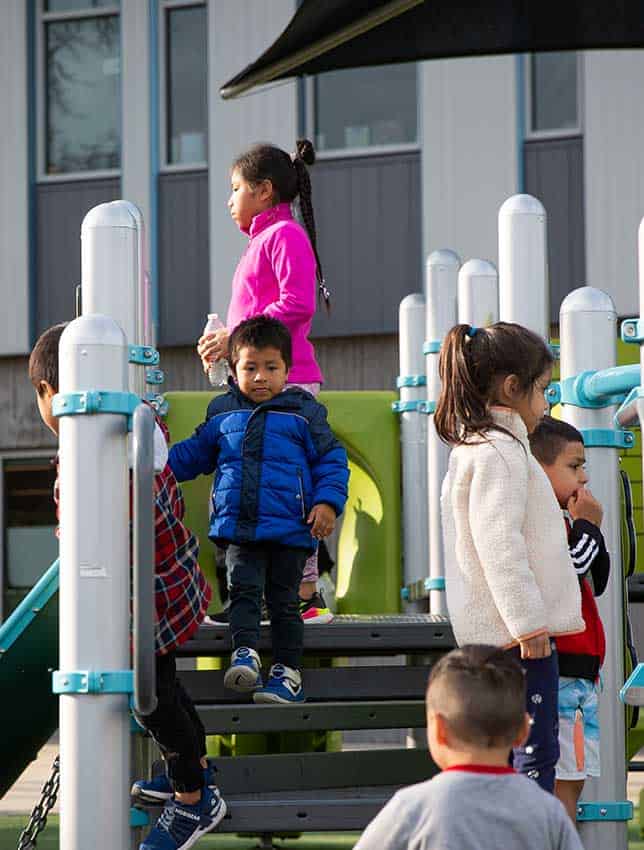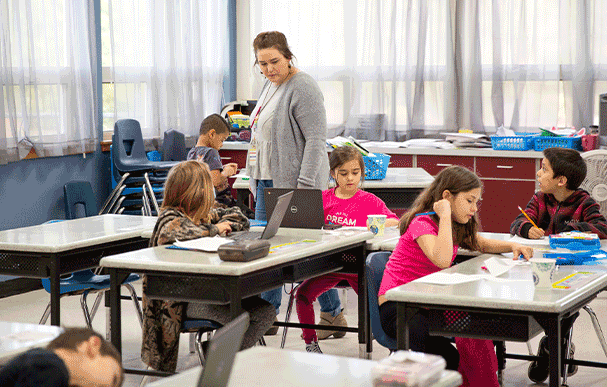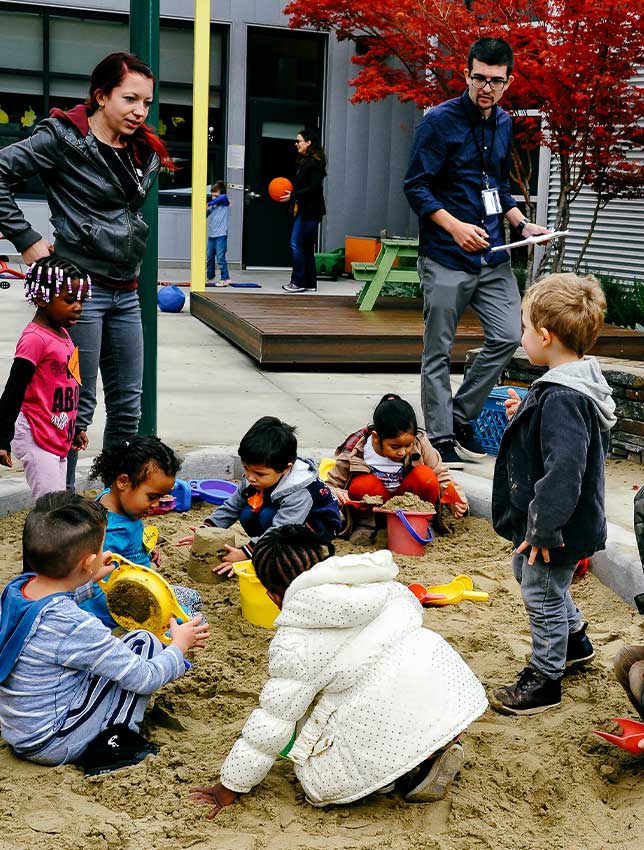Oregon's center for early development
Who we are



We’re making Oregon the best place to be a kid.
Children’s Institute has always worked passionately to improve outcomes for Oregon’s kids. Since our founding in 2003, we’ve come to know that a brighter future for our state rests on a foundation of love and care for every child and family. Love sometimes requires a reckoning.
We have to grapple with a difficult truth: many policies and practices designed to address economic inequity do not meet the needs of children of color and children living in rural communities.
We’re committed to shifting these systems toward justice. And we invite you to join us.
Attend one of our events, sign up for updates or make a donation to Children’s Institute.
Mission
Vision
We envision a socially just and equitable Oregon where all children have the love, care, and education they need.
Mission
We leverage research, practice, policy, and advocacy to shift systems toward justice for families so that all of Oregon’s children, prenatal to grade 5, have access to opportunity.
Vision
We envision a socially just and equitable Oregon where all children have the love, care, and education they need.
Oregon’s center for early development
Envisioning a Different Kind of School
Values
Honor
We see children as complete people and value their contributions to the world. We honor all children and families by centering their humanity, respecting their dignity and self-determination, and uplifting community wisdom and voice.
Equity
We center and advance equity in all of our work.
Learning
We embrace multiple ways of knowing and pursue growth and learning through research and our connections with each other, the children and families we serve, and the communities in which we operate.
Innovation
We will be bold, think creatively, and take risks to ensure that we are doing all we can to help children thrive.
Connectedness
We believe children develop and grow in connected communities, so we work to build bridges and deepen our relationships with and in families, communities, and systems to support early learning practices. We strive to be a powerful connection to resources for educators and a center for early development.



Our Commitment to Diversity, Equity, Inclusion, and Justice
As a policy, advocacy, and research organization oriented toward building, funding, and expanding an early childhood system for children prenatal through third grade, it is imperative that we work to create a system that does not replicate bias, discrimination, and inequality.
Because we know that many early childhood policies and practices designed to address economic inequity have still historically left children and families of color and rural communities behind, our work must drive toward equity across the state. And because issues of race and poverty are inseparable in the United States, fighting against poverty, and the effects of poverty on children, families, and communities, necessitates a fight against systemic racism. Working at the intersection of racial and economic justice will serve as an accelerator for true social change, and is a way to honor the humanity of all children.

As Oregon’s center for early development, we commit to centering justice in everything we do. To that end, we will:
- Listen deeply to our children, families, communities, and providers and honor their experience and wisdom as those who are closest to the work
- Leverage our power and privilege to amplify the voices of those most impacted by structural racism and other oppressions
- Foster an inclusive table that shares power, resources, access, knowledge, and opportunities and encourages learning and humility
- Interrogate and challenge dominant culture practices in order to create conditions of safety, comfort, and belonging for racially diverse people who join us in our work
- Deliberately and continuously center equity in policymaking, decision making, and policy implementation to identify and eradicate systemic racism and other structural oppressions in our child-serving systems
- Continuously challenge ourselves, our partners, and decision-makers to take an inclusive and critical approach to data and research that recognizes and uplifts the full diversity of cultural knowledge, lived experience, and community wisdom as valid sources of data
- Create and nurture an internal culture of belonging where staff members from all backgrounds have the psychological safety to bring their whole selves to work
See examples of our work at Earl Boyles Elementary and Yoncalla Elementary.
